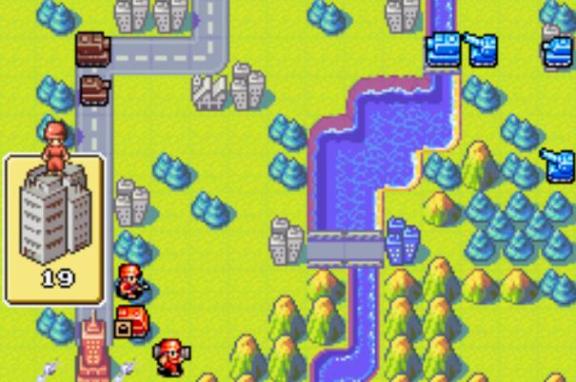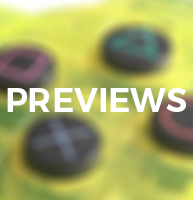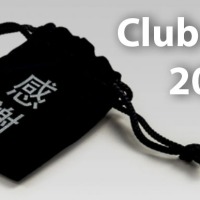Nintendo have never been known for following trends. Their attitude to mobile gaming is a perfect example; whilst many other companies quickly set about bringing their biggest IP into people’s pockets, Nintendo have stood by their ideals and held out until this year, with an their first mobile game announcement in collaboration with DeNA fast approaching. Perhaps a more obvious example of their differing attitude to change is their decision to forgo HD graphics on the Wii, opting to approach the console and its software with their own design philosophy rather than directly competing with their rivals, a decision questioned by many, but perhaps one that ultimately worked to their benefit.
In some ways, sticking by this philosophy is the thing that has made Nintendo so successful over the years; even with ever-changing market trends, Nintendo are still responsible for the creation of some of the most powerful gaming IP on the planet; it could easily be argued that Mario is as popular now as he was 30 years ago and with the ability to wield the power of massive multimedia brands such as Pokémon, the Big N have more than a little breathing room for some experimentation now and again.
With this in mind, it’s no surprise that in the last 10 years we’ve seen the birth of the likes of Pikmin, Chibi-Robo! and even eShop exclusive names such as Genius Sonority’s Denpamen, more quirky IP based on unique and in some cases, weird ideas that aren’t afraid to take a few more risks in their designs and concepts, yet still ooze with Nintendo charm. Some such as Pikmin have become successful, claiming their status amongst Nintendo’s greats. Others have been less successful; whilst the likes of Steel Diver, Zangeki no Reginleiv and Chosoju Mecha MG were never intended to be the next Zelda or Donkey Kong, they stand as a shining example of Nintendo’s willingness to try new things and step outside of their quite clearly defined comfort zone, something they are often accused of not doing enough.
With such colourful and creative ideas coming from seemingly every angle, it’s no surprise that fans the world throughout want to get their hands on a piece of the action, but due to highly differing markets between Japan and the west, with Japanese consumers perhaps more likely to show interest in new and unique titles, many of these more obscure gems have never made the trip across the pond. Campaigns in the vein of ‘Operation Rainfall’ have sprung up for seemingly every title that fails to receive immediate confirmation that its on its way westward, with petitions, videos and more coming together in an attempt to convince Nintendo that this is where people want to spend their money.
One of the most recent campaigns to emerge stateside is people ‘lobbying’ for Nintendo to give the latest entry into the Project Zero/Fatal Frame series, Project Zero: Maiden of Black Water, a physical release in North America. The game has been out in Japan since late September and is scheduled for release in the rest of the world at the end of this month. In Europe, the title will receive a limited physical release in some countries, but currently there is no word of a release in the US outside of the digital version.
Many people have taken to Twitter to challenge this decision, angry that they’re limited to only the digital option for this game, and that’s understandable; after all, owners of the Wii U ‘Basic’ bundle, which only includes 8GB of storage, would be unable to play the game without purchasing additional external storage. Some are simply opposed to digital-exclusive media as a medium and the controversies that surround ownership of downloadable games, and that’s understandable too. However, the question that really has to be asked is, have Nintendo made the right decision in keeping this title off store shelves?
It’s hardly a surprise that money and sales are the deciding factor when it comes to game localisation. The revelations made by ex-Treehouse member Chris Pranger on the Part-Time Gamers podcast about the struggles of localisation within Nintendo likely hold up more than many would like to admit. Pranger explained that even for a title like Xenoblade Chronicles, which is now one of the most sought-after retail games on the Wii with a huge fan following, the market is often simply not big enough to merit the huge costs involved with translation and marketing in the west, with no definite guarantee that a return will be made on what ultimately can be considered a niche title in the eyes of western gamers.
With this in mind, surely the confirmation of a title like Project Zero is one that could be considered surprising? After all, at E3 2011, weren’t we as western gamers unsure if we’d even be getting the latest entry in the Fire Emblem series, one of Nintendo’s longest-running, million selling franchises? Even as a supporter of the physical format and a big fan of niche games, it’s not difficult to understand that in a gaming market where many publishers aren’t willing to take any risks, one where Nintendo already are taking risks with huge marketing investment on brand new IP such as Splatoon and even the continuation of old (but historically low-selling) favourites such as Chibi-Robo!, there surely must be some kind of limit?
Looking at the newly released Chibi-Robo!: Zip Lash makes the position Nintendo is currently in with some of their smaller IP quite clear; they’re more than willing to give them a chance, providing they can deliver the way any product should. This came to light when series producer Kensuke Tanabe publicly said that the latest Chibi-Robo! game could be their “last chance”, hoping that by changing the series from a simulation game into a more accessible action-platformer, it would be able to achieve “mainstream success” and secure its future. Whether or not it has delivered on this premise is yet to be seen, but it shows how Nintendo are still open to experimentation with IP that, sales wise, may lack a future, but they believe have potential to evolve into a successful product.
However, it’s interesting to note that the inclusion of Amiibo functionality in Zip Lash suggests that Nintendo have opened themselves a new route for trying to build interest in what would otherwise be niche, low-selling titles. Whilst not crucial to the game, it’s undoubted that with the massive popularity of Amiibo, especially in North America, some consumers are likely to purchase the game simply on the basis that it comes bundled with one of the collectable figures. The appeal of including an Amiibo with the could even be enough to give it a greater shelf presence and when combined with a more user-friendly platforming game, Nintendo may have the Christmas period in their sights as a prime opportunity to try and bring this franchise to the masses.
When it comes to franchises like Rhythm Tengoku, the situation is less clear. Past entries in the series have managed to break the million mark on Nintendo DS, especially in Japan where the market for rhythm games is most likely a lot higher, but with such a quirky premise, the title is likely a hard sell to a western audience, especially those uninformed about the series. The most recent entry, Rhythm Tengoku: The Best Plus, a series compilation title for 3DS, managed to shift through over 80% of its initial shipment when it released in Japan earlier this year, a success cited to aggressive marketing and TV advertising, as well as demand from dedicated fans of the series who certainly exist in Japan, as evidenced by the existence of an arcade version of the game and a seeming abundance of merchandise available for purchase and in arcades. With this in mind, the title’s existence is unsurprising and whilst disappointing, there’s an obvious explanation for why we’ve yet to hear of this one making its way westward. However, in this case, the series’ previous success may mean that we could be in store for a pleasant surprise, so perhaps it’s too early to give up all hope.
There are a number of instances amongst Nintendo’s smaller franchises where even following the release of a large number of entries, there has been a failure to provide an adequate return. One such example is Advance Wars, an Intelligent Systems fan-favourite that, whilst being hailed by some as one of the greatest turn-based tactics games ever made, has failed to become a million seller even across four titles (not counting the Famicom, Game Boy and Super Famicom entries that have never been released outside of Japan), with the first two entries for GBA failing to reach even half a million sales in the US. This can likely be seen as the explanation for the sudden absence of releases since 2008’s Days of Ruin, leaving the series’ future doubtful, regardless of its critical acclaim. When considering the work Intelligent Systems did to revitalise the almost-dead Fire Emblem franchise with Fire Emblem Awakening, perhaps a similar magic could be worked with the Wars series? Only time will tell if Nintendo are willing to take a gamble on a series that has never quite delivered.
Now it’s not to say that Nintendo should stop bringing some of the more weird and wonderful titles they have to offer towards the west; I’m still personally a little sore about the absence of games such as Rhythm Heaven: The Best Plus and Daigasso! Band Brothers P from the west, so if I had the chance to play these games, I’d be pleased, regardless of their status as physical or digital titles. Unfortunately, the fact that Nintendo are willing to take a chance on a game like Project Zero is something that comes to us in the form of a surprise, so as blunt as it sounds and as bad as it is, we’re lucky to be getting it at all!
Don’t get me wrong, I’m not saying that we should suddenly give up and accept that some of our favourite games are unavailable to us, no matter how weird and wonderful their premises may be. Nintendo are unique and should stay that way; I want to see more Mario the same way I want another Doshin the Giant, but it’s important that we don’t forget Nintendo are a business first and foremost; not getting a physical version of Project Zero isn’t fun, but remember that if it wasn’t digital, you might not be able to play it at all.


























I used to obsess over Zangeki no Regenleiv. Hope it takes the Sin & Punishment route.
LikeLike
It’s a shame it never made it over here, I guess it just didn’t fit with the image Nintendo had built up for the Wii in the west! It’s been released on the Wii U VC in Japan, but the chances of it coming over still seem doubtful.
LikeLike
Yeah I think you’re right. Ah they might do one of those Hanabi festivals. You never know.
LikeLiked by 1 person